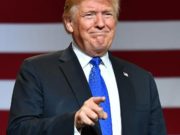In a recent interview with Bloomberg News, Supreme Court Justice Ruth Bader Ginsburg started up a chorus of that old familiar tune, “There’s Too Much Money in Politics.” Characterizing the Roberts court as “activist,” she expressed her dismay over the direction campaign finance law has trended in recent years. “You take the limits off and say, ‘You can spend as much as you want,’ and people will spend and spend,” she said. “People are appalled abroad. It’s a question I get asked all the time: Why should elections be determined by how much a candidate can spend and why should candidates spend most of their time these days raising the funds so that they will prevail in the next election?”
We’ve heard this song and dance many times before, but it’s disappointing to hear such a naive perspective from an esteemed Supreme Court Justice. It’s also flawed, as her statement conflates the policy implications of the Supreme Court’s 2010 case, Citizens United v. FEC, and the subsequent D.C. Circuit Court of Appeals case, SpeechNow.org v. FEC, which together enshrined the right of all citizens to make unlimited independent expenditures on political speech, with the separate matter of candidate fundraising, which the government may still limit and heavily regulate. More disturbing than this conflation, however, is what Ginsburg’s perspective reveals about the mentality of proponents of regulating political speech.
It’s insulting, and incorrect, for Ginsburg to claim that spending determines election outcomes. In doing so, she reduces the significance of voters to the role of rubber-stamping the richest candidate, and ignores the many big money candidates who have been soundly rejected by voters in recent years. No amount of money was going to make Rick Santorum or Newt Gingrich President in 2012, as Foster Friess and Sheldon Adelson learned the hard way. Other big spenders who became big losers in recent elections include Mitt Romney, Linda McMahon, and Meg Whitman, to name just a few. Effective political contributors donate to candidates who are likely to succeed, which means that contrary to Ginsburg’s narrative, voters are influencing the actions of political spenders more than the other way around.
Ginsburg’s dismissal of the significance of voters says a lot about how proponents of regulating speech view democracy. They treat voters not as citizens who can evaluate arguments and evidence to choose which government is best for them, but as infants who flock to whichever candidate can make the most noise and dangle the shiniest objects in front of their faces. Notice that Ginsburg is arguing for limits, not disclosure. She does not say that the source of political spending should be public knowledge; she says that certain levels of spending should be entirely prohibited. But what is the point of having an elected government if that government needs to control elections so that the people don’t “choose wrong”?
Supporters of free speech have a fundamentally different, and more empirically supported, view of the role money plays in politics. We recognize that money is just a basic necessity for coordinating activity and making one’s voice heard. To communicate with as many people as possible clearly and effectively, campaigns need staff, office space, travel budgets, money for advertisements, and so on. In a country as large and diverse as the United States, it should be no surprise that it’s expensive to advertise your message to the entire voting public – especially if you want to customize your message for different audiences and respond to attacks from competing campaigns. NPR may have felt cause for panic in 2012 when Americans began to spend nearly as much on elections as they do on potato chips, but given the importance of the federal government, shouldn’t they?
Political spending is not necessarily a bad thing. Anti-speech activists have long convinced the public that political spending equals corruption, but it often doesn’t, and more often equals participation. In a democracy, more citizens getting together and speaking out about issues should be celebrated, not demonized. When people like Justice Ginsburg bemoan the growth of money in politics, remember that much of that money has been spent making politics more inclusive by reaching out to people that previously weren’t involved. Studies show that higher political spending is correlated with higher voter turnout and increased voter knowledge, and that it does not decrease public trust, demonstrating how political spending is a part of healthy democracy.
Consider another recent example: The 2008 presidential campaign of Barack Obama set records for fundraising, but it also made waves for the incredible diversity in its support base, and for getting more young people out to vote than previously thought possible. Both of these outcomes are a direct result of the Obama campaign’s ability to spend significant amounts of money on voter outreach. As the country’s demographics grow increasingly diverse, it’ll continue to take a great deal of resources to effectively communicate a message to the entire voting public. If you think it’s good to have high turnout, then you should recognize how limits on political spending threaten to make politics once again a pastime just for the few and not for the many. Indeed, before the modern system of primaries and private fundraising, decisions about which candidates would get to run were made by a handful of party leaders in smoky back rooms. If you think the tens of thousands of political donors are too small a group to hold such significant influence, they’re still enormous compared to the alternative: party leaders or government bureaucrats who would select which candidates’ messages are heard when, where, and in what format.
For Justice Ginsburg, who sits on a 9-person panel that dictates how the Constitution is interpreted for hundreds of millions of Americans, government by the few might seem ideal. Democracy, on the other hand, calls for every citizen to decide for themselves how involved they wish to be. If political spending rises, so be it. That’s the price of a robust nationwide political discourse. Elections are still decided by voters, and they always will be.














